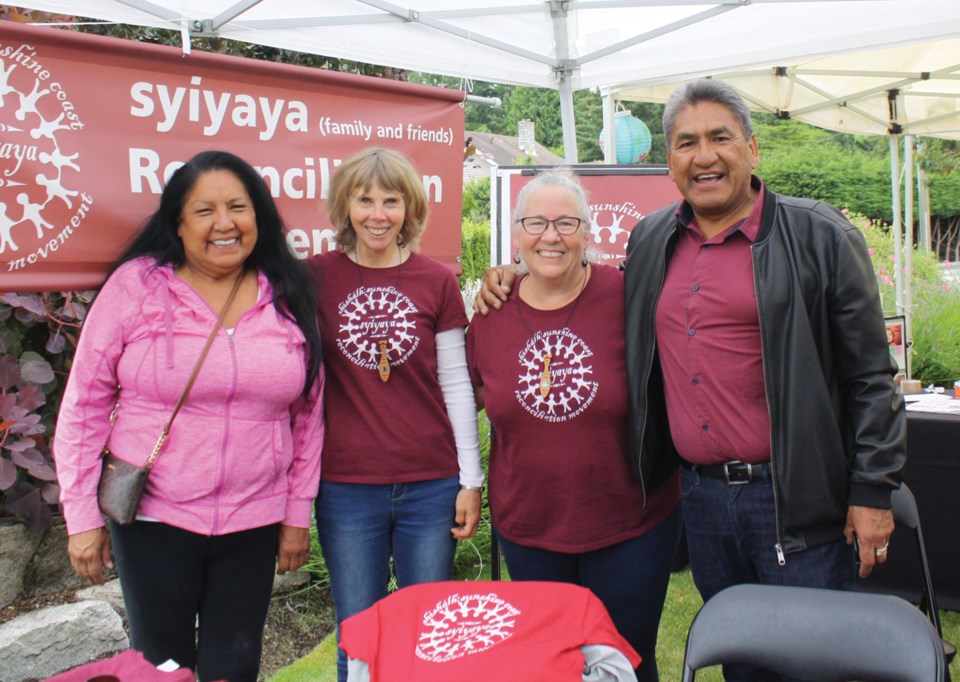The backers of the syiyaya Reconciliation Movement are hoping to convince the District of Sechelt to free up money from the Community Forest Legacy Fund to help support their project.
Former Sechelt mayor Cam Reid, who’s leading the project along with Garry Feschuk, a former chief of the shíshálh Nation, was in front of Sechelt council July 18.
“Although we’ve got your support, now we need dollars,” Reid told councillors. “We’re not asking for the taxpayers of Sechelt to cough up money. We realize that you have money from the Community Forest that you’ve put into reserve for some significant project in the future.”
Reid acknowledged the $30,000 the syiyaya Reconciliation Movement has already received directly from the Community Forest as part of its effort to strengthen relations with the shíshálh Nation, but urged the district to look to the Legacy Fund to cover a contribution on behalf of the municipality.
Former shíshálh Nation councillor Randy Joe, standing in for Feschuk who was unable to make the meeting, said reconciliation is something the shíshálh Nation has been working toward for “at least 150 years.”
“We need this [project] more than ever now. It’s time. It’s time for a change. It’s time to bring down those walls,” Joe said. “We need your support, we need you with us… This is the most important time I’ve ever been challenged with in my life.”
Reid said the first part of the project, weaving up to four reconciliation blankets, should begin some time in August.
He said they’re hoping to raise a total of $191,000, which would fund the weaving, carving a reconciliation pole and producing a documentary on the project.
So far, the group has raised $37,000: $30,000 from the Community Forest, $5,000 from the Sunshine Coast Regional District and the balance in smaller contributions. The shíshálh Nation has offered to donate cedar logs.
“We’re desperately short,” said Reid, who noted that some potential funders the group has approached won’t be taking applications until January 2019 and others have rules that might disqualify syiyaya because it’s not an entirely First Nations initiative.
“We’re running into some hurdles and stumbling blocks that shouldn’t be there,” he said. Reid also said with other potential funding likely to take time to come in, local government support would keep them from losing momentum.
Mayor Bruce Milne said council is behind the project. “We support this and we agree very much with Randy’s comments that this is essential in the times now. Given that we do have our own budget process and cycles to look at … but we will consider it seriously.”
Milne also said he was concerned that syiyaya wasn’t getting the wider financial support he’d hoped to see.
“When you first came, we understood one of the objectives was to make it not a top-down government-funded project but to make it a grassroots project where everybody could come through with maybe a $10, $20 donation in support,” Milne said. “I hope that grassroots sense of participation doesn’t disappear, because we want the reconciliation to be from the people, not just from governments.”
Although the district has yet to commit any direct funding to the syiyaya Reconciliation Movement, it has agreed to act as a “flow through” to allow individuals to contribute and get a tax receipt.



